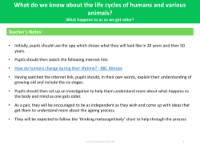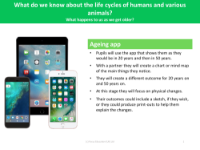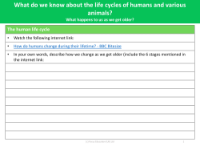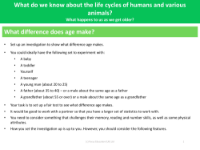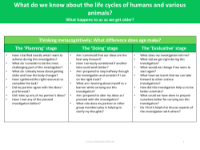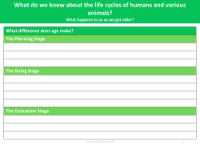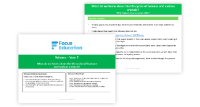What happens to us as we get older? - Presentation
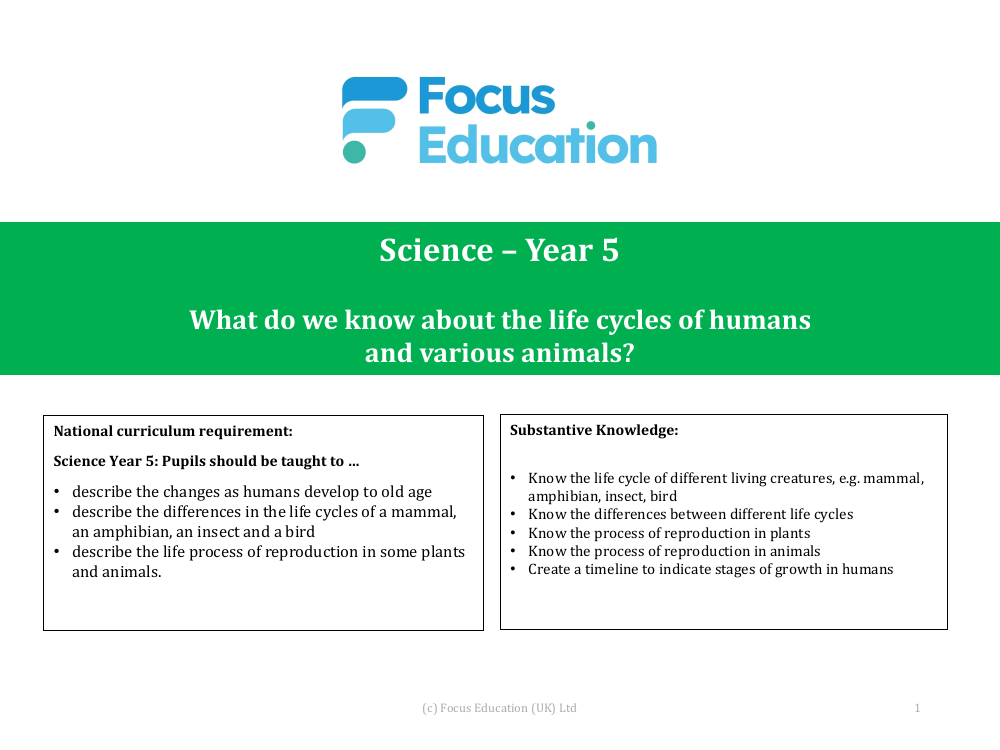
Science Resource Description
In the Year 5 science curriculum, pupils delve into the fascinating journey of life from youth to old age, exploring the life cycles of various animals including mammals, amphibians, insects, and birds. They learn about the stages of human development and how our bodies transform over time. The curriculum also covers the reproduction processes in both plants and animals, providing students with a comprehensive understanding of the biological cycles that sustain life on Earth. To aid their learning, students are encouraged to create timelines to visualise the stages of human growth, which helps them to grasp the concept of ageing and development more clearly.
The educational programme is designed to engage students with interactive activities such as using an app to visualise themselves in the future, conducting research on changes in humans at different life stages, and setting up investigations to understand the effects of ageing on the body and mind. Pupils also learn key scientific vocabulary including terms like puberty, gestation, and reproduction, which are crucial for describing the biological processes they are studying. Through a blend of independent and group work, students classify animals, seek patterns, and compare physical abilities, all while being encouraged to think metacognitively about their learning process. The unit emphasises the importance of understanding life cycles and the impact of ageing, equipping students with both knowledge and scientific inquiry skills.
